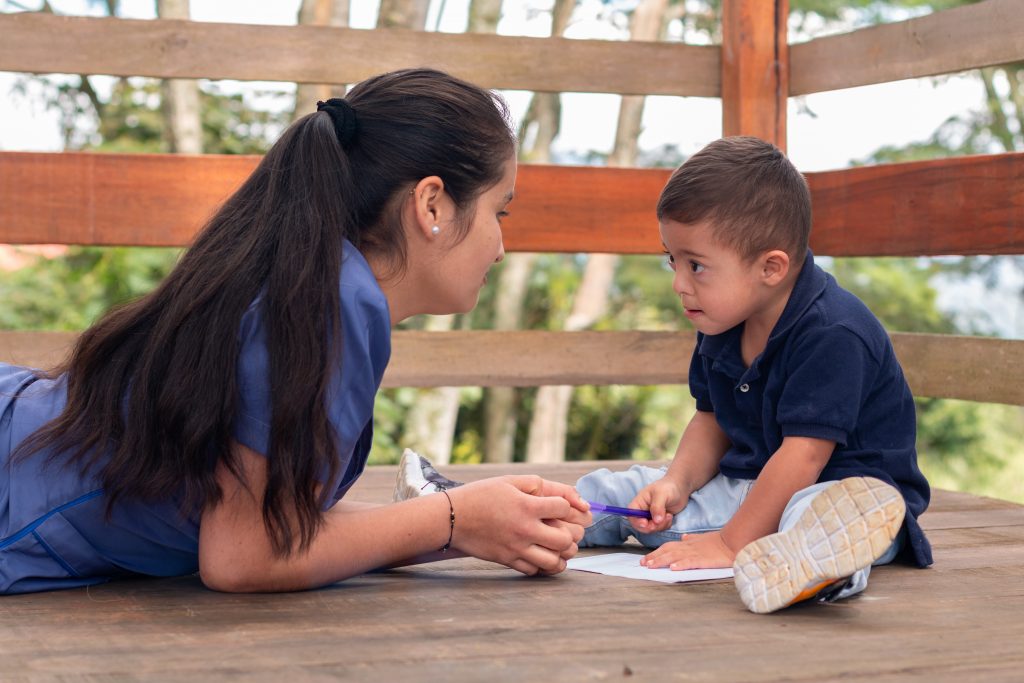Our top-ranked MSW degree can be combined with either a Master of Public Health (MPH) from The University of Alabama at Birmingham or a Juris Doctorate (JD) from The University of Alabama School of Law.
Taking advantage of our coordinated degree programs will allow you to earn two graduate degrees in two fields in less time than it would take to complete them sequentially.
To enroll in one of our coordinated-degree programs, students must apply to each school separately and be admitted to both programs.
MSW/MPH Coordinated Degree
The Master of Social Work/Master of Public Health is coordinated between the School of Social Work at the University of Alabama and Population Health at The University of Alabama-Birmingham School of Public Health.
Students who are interested in this coordinated degree should separately apply to UA’s MSW program and to Population Health at The University of Alabama-Birmingham School of Public Health for admission to the MPH Program.
Students are required to first secure admission to our MSW Program and, at the end of the first semester, apply separately to the Population Health concentration for the MPH Program at the UAB School of Public Health. Acceptance in the MSW program does not automatically ensure acceptance into the MPH program and vice versa.
Students attend classes in Tuscaloosa and Birmingham.


Goals
Students who earn a MSW/MPH will be able to:
- Describe the health problems faced by children and their families within the context of public health
- Apply the tools of biostatistics and epidemiology to analyze problems faced by children and their families
- Apply current policies and programs directed at children and their families and describe how they are developed
- Plan, implement, and administer MCH programs
- Demonstrate a solid foundation in both social work and public health principles and skills necessary for individuals interested in leadership positions at the community, state and national levels
Mission
The mission of the MSW/MPH Dual Degree Program is to train social workers for interdisciplinary practice in public health programs, both international and domestic, who are concerned with the promotion and improvement of the health of diverse populations, including women, children, and families. The program places emphasis on population-based solutions to complex health problems that are multifactorial in origin, rather than on short- term solutions for resolving immediate problems of individuals and families.

Career Opportunities for Graduates
Graduates of the MSW/MPH Coordinated Degree Program will have two graduate degrees and the skills needed to pursue careers in a variety of social work and/or public health settings, including:

• Policy and program development
• Organization of community services
• Program administration
• Planning and evaluation
• Research and teaching
Time Limit
The MSW/MPH Coordinated Degree Program provides an exciting opportunity for students to earn two graduate degrees, a Master of Public Health (MPH) from The University of Alabama at Birmingham and a Master of Social Work (MSW) from The University of Alabama. If both degrees were earned sequentially the completion period would be three and one-half years.
MSW/JD Coordinated Degree
The Master of Social Work/Juris Doctorate Degree Program is coordinated between the UA School of Social Work and UA School of Law.
Before being classified as a MSW/JD coordinated degree student, applicants must be accepted in the School of Law and then the MSW Program. Students must apply separately into each program. Individuals who wish to earn a coordinated degree should seek advice in both the School of Social Work and the Law School before applying.


Comprehensive Examinations/Capstone Experiences
For MSW students, the required field education practicum is the Capstone experience. At the conclusion of their studies, all MSW students complete one required field education practicum. An additional field education practicum is required of students in the 60-credit-hour MSW Program, to be taken after they complete 15 credit hours of MSW prerequisites. In each field education practicum required, an MSW student must demonstrate successful integration and application of the knowledge, skills, and values learned both in class and from the practicum instructor, employing these as he or she delivers social services in a practice situation. A formal evaluation of the MSW student’s performance serves as the final evaluation in each field education practicum.
The JD program has no mandatory exam or Capstone experience.

Time Limit
Per Graduate School regulations and ABA Standards, students in the coordinated degree program are allowed no more than 6 years, from the time of matriculation, to complete all requirements for the coordinated degrees.
Both Degrees Conferred in Same Commencement
Both degrees are conferred during a single commencement exercise, once all degree requirements have been met. Neither degree will be granted until both degrees are earned, except in cases in which a student formally withdraws from the coordinated degree program.
Discontinuation in One of the Degrees
If a student enrolled in the coordinated degree program were to discontinue enrollment in the program and continue seeking only one degree (MSW or JD), the student would have to meet the full requirements of that degree.
Dual-Degree Degree Requirements
Students in the MSW/JD Coordinated Degree Program must complete all the required MSW courses necessary for the degree; they may complete their elective requirements (currently nine credit hours) in the Law School.
LAW electives approved to count toward the MSW:
- LAW 606 – Housing Law, LAW 695 Elder Law
- LAW607 – Disability Law, LAW 718 Biomedical Ethics
- LAW 635 – Children’s Rights, LAW 756 Family Law II
- LAW 654 – Special Aspects of Family Law, LAW 769 Poverty Law
- LAW 655 – Immigration Law and Policy, LAW 791 Juvenile Law
- LAW674 – Family Law I, LAW 821 Public Interest Lawyering
- LAW 683 – Administration Law, LAW 834 Mental Health Law


The JD program currently requires at least 90 hours of course work, of which six hours may be fulfilled with approved courses offered outside the School of Law School. The JD is a cohort-based program completed over 3–4 years. Students in the coordinated degree program are required to complete 9 hours of MSW courses as part of the 90 hours constituting study for the JD. The following MSW courses will count toward the JD, contingent upon the student having first completed a year of the JD program. MSW courses taken before that year will not count toward the JD degree. Courses taken in an online or primarily online format will not count toward the JD degree.
MSW courses approved to count toward the JD:
- SW 500 Social Welfare Policy: History, Problem, and Analysis; or
- SW 578 Social Welfare Policies and Delivery Systems, Social Problems, and the History of Social Welfare
- SW 501 Social Welfare Policy: Advanced Policy Analysis
- SW 532 Models and Methods of Social Work Practice with Adults in Mental Health;
- SW 533 Models and Methods of Gerontological Social Work Practice;
- SW 564 Models and Methods of Social Work Practice with Children and Adolescents in Mental Health; or
- SW 565 Models and Methods of Social Work Practice in Child Welfare and Family Services

The coordinated degree program requires 114 credit hours for students admitted as MSW advanced standing students and 132 credit hours for students admitted as 60-credit-hour MSW students.
